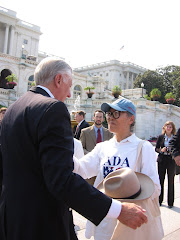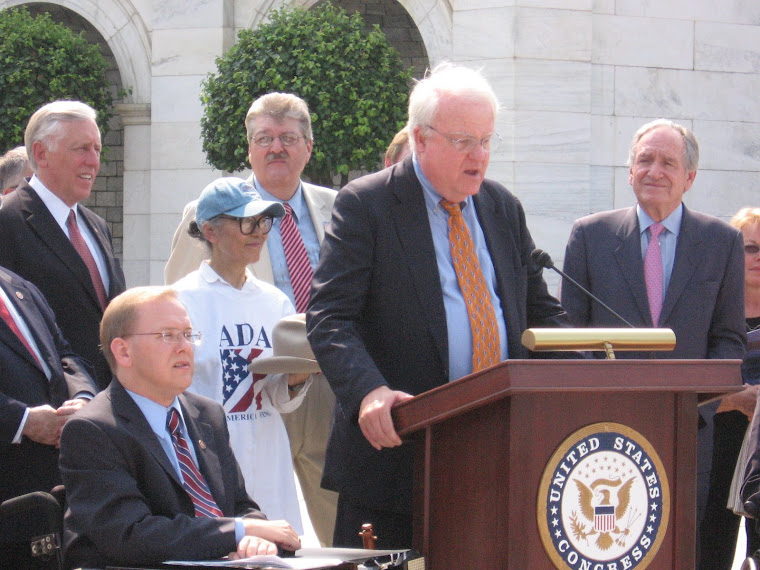
The Senate Health, Education, Labor, and Pensions Committee (HELP Committee) convened a public Roundtable meeting/hearing yesterday entitled, “Determining the Proper Scope of Coverage for the Americans with Disabilities Act," and chaired by Senator Tom Harkin (D-IA).
Who Showed Up?
Tom Harkin (D-IA)
Mike Enzi (R-WY)
Orrin Hatch (R-UT)
Patty Murray (D-WA)
Pat Roberts (R-KS)
What Went Down?
Speaking in defense of the bill that passed the House 402-17 on June 25 were law professors Chai Feldblum (Georgetown University), Sam Bagenstos (Washington University), Carey McClure (an electrician with muscular dystrophy who lost his employment discrimination case on the grounds that he wasn’t "disabled enough" to qualify for civil rights protections under the ADA), attorney Jo Anne Simon (a disability rights lawyer with education expertise), and Michael Eastman from the U.S. Chamber of Commerce.
Sue Gamm, an education consultant from Chicago, expressed concerns that the House bill had the potential of creating rights for more students under the ADA and Section 504 of the Rehabilitation Act in the context of K-12 education, and were that to happen, there may be unintended consequences of increased costs for evaluations and assessments and reasonable modifications in the education context.
Terry Hartle, a Senior Vice President with the American Council on Education, expressed concerns that the House bill may make it more difficult for institutions of higher education to enforce academic standards.
Andrew Grossman, a Senior Legal Policy Analyst with the Heritage Foundation, expressed concerns that the bill would create costs for employers, especially small employers, that would hurt American competitiveness.
The five witnesses who were in support of the bill did a good job of responding to criticisms.
Senators Enzi and Hatch both made it clear that they wanted to support an ADA Amendments bill in this Congress, but that they needed an opportunity to make changes to the House bill to clarify areas of ambiguity. They did not express any details about the changes they were seeking. Senator Harkin, who chaired the hearing, made it clear that the Senate would have their own process this month and write their own bill.
Overall, Senators Harkin and Enzi were engaged and listened carefully to the witnesses, and seemed motivated to work together with Senator Hatch to work out any remaining concerns with the House bill and get a bill through the Senate in this Congress.
What's Next?
The HELP Committee bipartisan staff will have a series of meetings to resolve any issues that committee members have with the bill, with the goal of getting a bipartisan bill to the Senate Floor in September under the leadership of committee Chairman Ted Kennedy, who is expected to return to the Senate in September.
Watch the Senate Video (uncaptioned)



3 comments:
I am upset! How can you put out news material on this web site that says "Watch the video" and not have it closed captioned??
lower body make over -
maternityacupressure -
maternity acupressure -
maverick money makers -
meet your sweet -
muscle gaining secrets -
muscle gain truth -
natural cancer treatments -
niche review templates -
nyhms warcraft guides -
pappa pc -
pc booster -
pc optimizer pro -
pc secret formula -
pda flix -
privacy control -
publicrecordspro -
public records pro -
push button ecover -
reg defense -
reg genie -
registry easy -
registry genius -
registry smart -
registry winner -
registry winner download -
reverse mobile -
richard mackenzie direct -
rocket japanese -
rotator cuff training -
save my marriage today -
secrets book -
silent sales machine -
silver lotto -
Just popping in to say nice site.
Post a Comment